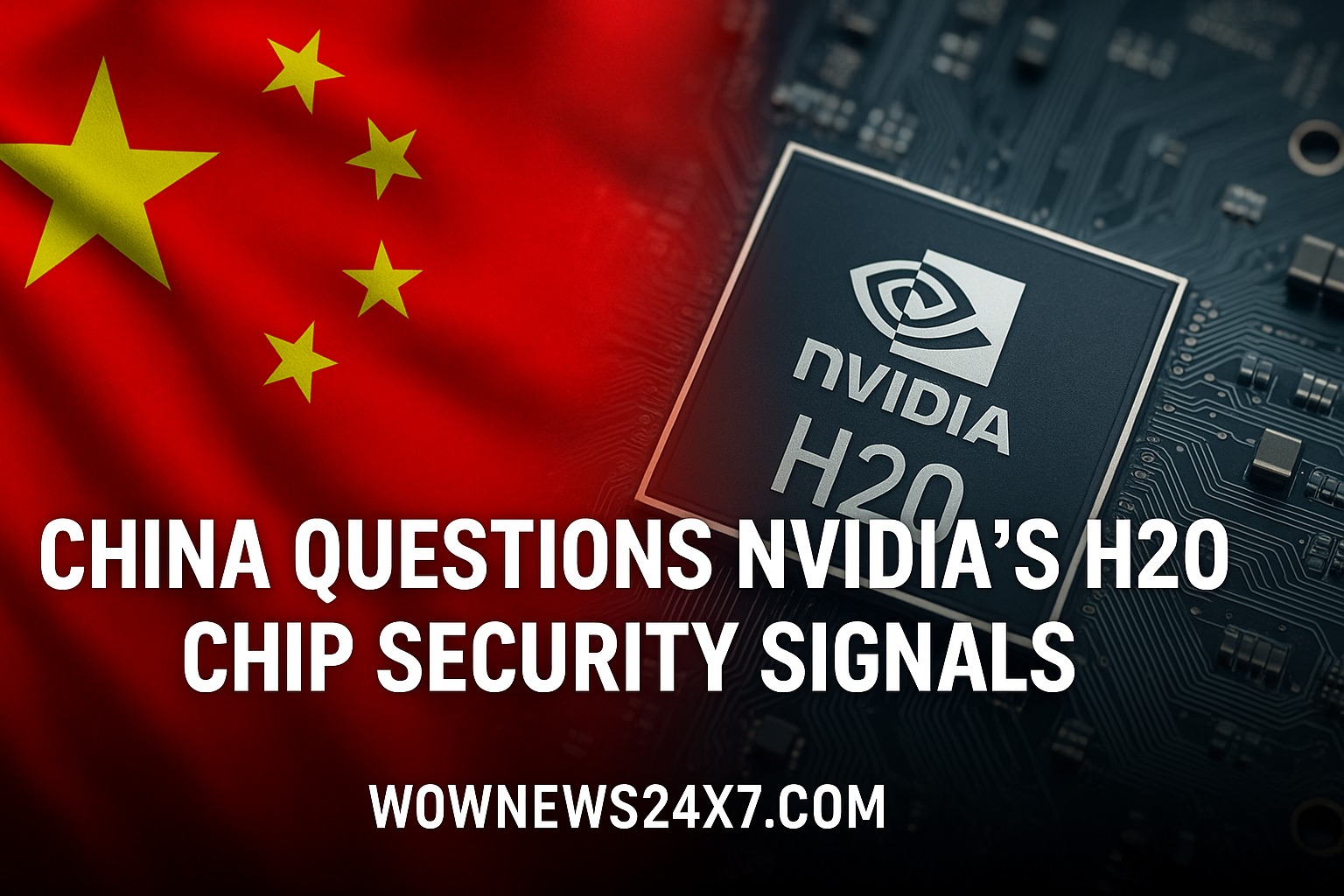Beijing Raises Alarm Over Nvidia’s H20 Chips: Security Risks Under Scrutiny
In a move that underscores escalating concerns over foreign technology in China’s digital infrastructure, the Cyberspace Administration of China (CAC) has officially summoned Nvidia Corporation to address alleged security vulnerabilities in its H20 AI chips. The chips, specifically designed for the Chinese market, are now under investigation for potential “backdoor” risks that could compromise national cybersecurity.
The CAC’s statement, released on July 31, 2025, indicates that Nvidia must provide detailed documentation and technical explanations regarding the chips’ architecture, particularly any features that could enable tracking, remote control, or unauthorized data access2.
What’s at Stake?
The H20 chip was developed by Nvidia as a workaround to U.S. export restrictions on its more powerful AI processors like the H100 and Blackwell series. While the H20 offers reduced performance, it remains a critical component for Chinese tech firms building cost-effective AI models. Companies such as Tencent, ByteDance, and Alibaba have reportedly deployed thousands of H20 units in recent months.
However, recent reports suggest that the chip may contain advanced telemetry features, raising red flags among Chinese regulators. Experts in AI and cybersecurity have warned that such capabilities could be exploited for surveillance or remote shutdowns, violating China’s Cybersecurity Law, Data Security Law, and Personal Information Protection Law.
Nvidia’s Response and Diplomatic Tightrope
Nvidia has yet to issue a formal public response to the CAC’s summons. Internally, the company is said to be cooperating with Chinese authorities and preparing technical disclosures. The situation places Nvidia in a delicate position, balancing compliance with Chinese regulations while navigating U.S. export controls and political scrutiny.
Earlier this month, the Trump administration reversed a ban on H20 chip exports to China, citing trade negotiations and rare earth supply concerns. This reversal drew bipartisan criticism in the U.S., with lawmakers warning that allowing H20 shipments could bolster China’s military AI capabilities6.
Market Impact and Strategic Implications
The news has already sent ripples through the tech sector. Nvidia’s stock dipped slightly following the announcement, reflecting investor anxiety over potential disruptions to its China business. Analysts estimate that Nvidia sold over 1 million H20 chips in 2024, and the company recently placed a 300,000-unit order with TSMC to meet surging demand4.
If the CAC’s investigation leads to restrictions or recalls, Nvidia could face significant financial losses and reputational damage. The company previously warned that export bans could force it to write off $5.5 billion in inventory and lose $15 billion in potential revenue.
Broader Tech Geopolitics
This development is part of a larger narrative of tech decoupling between the U.S. and China. Both nations are tightening controls over AI, semiconductors, and data infrastructure, citing national security and strategic autonomy. China’s scrutiny of Nvidia may also serve as a signal to other foreign tech firms operating in sensitive sectors.
As global tensions rise, companies like Nvidia are caught in the crossfire—expected to deliver innovation while adhering to increasingly complex and conflicting regulations.
What’s Next?
The CAC has requested Nvidia to submit all relevant documentation within the next two weeks. Depending on the findings, China may impose further restrictions on H20 chip usage or demand architectural changes. Meanwhile, U.S. lawmakers are pressing the Commerce Department to reconsider its export license approvals.
This case could set a precedent for future tech collaborations and regulatory oversight, especially in AI and high-performance computing.
Sources: Economic Times, South China Morning Post, Dimsum Daily, MSN, Business Standard, Reuters
Advertisement
Advertisement





